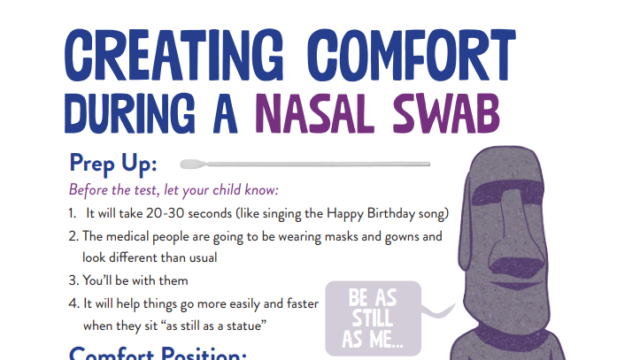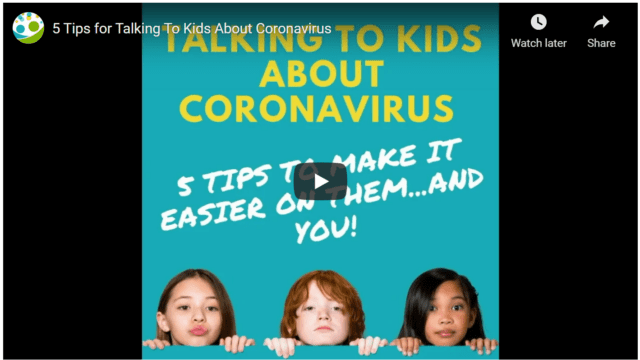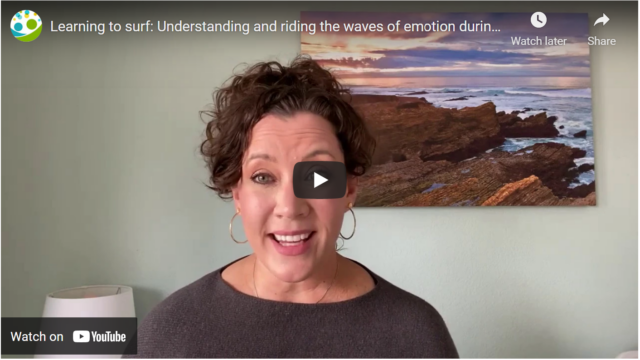Lessons From the Trenches: Tips for Getting Your Family Through Uncertain Times
How the lessons we’ve learned through my daughter’s cancer journey could help your family get through COVID-19.
Ines Vaniman LMFT
Kids (3-11) Tweens & Teens (12+) Covid-19 English Pain Management
Share this:
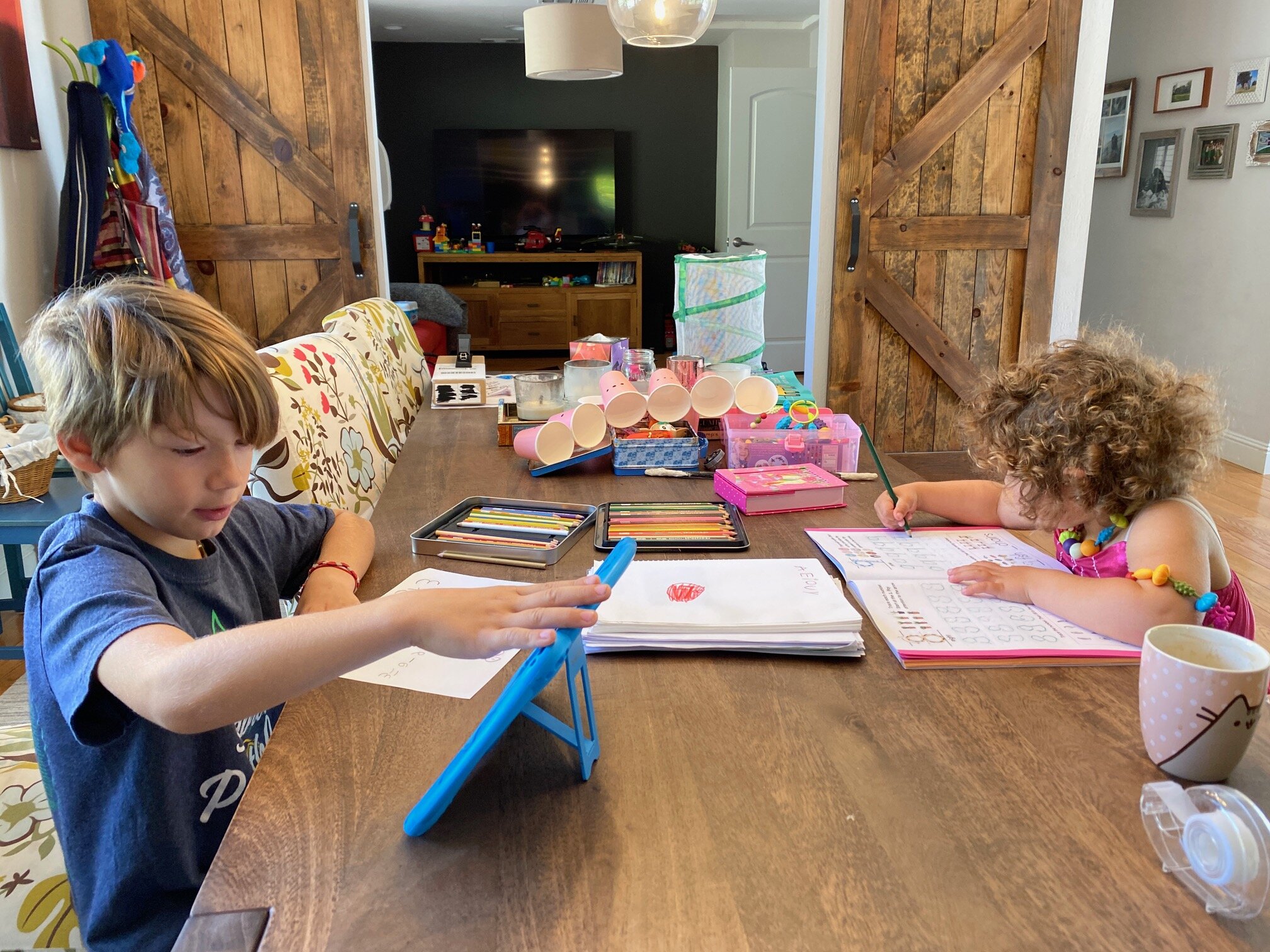
Two years ago, our lives were turned upside down when our 2-year-old daughter Emi was diagnosed with Leukemia. As a result of this, we had to develop and learn a bunch of new skills to guide us through that crisis. Interestingly enough, many of these skills have transferred pretty easily to help us cope with COVID-19. I wanted to share our experience in the hopes of helping other families navigating this pandemic.
The first step is grief, and all the emotions that come with it. Right now, we’ve all just been dealt a major blow that none of us asked for, our lives have changed drastically and we are all grieving the life we used to have. Jody Thomas, PhD, has a great video on how you can learn to surf these waves of emotion and have some control over the big emotions we’re all experiencing. After all, nobody asked for a global pandemic, just like nobody asks for cancer.
Be Intentional.
One of the hardest things to come to terms with can be that we have no control over how long this is going to go on or what the outcomes are going to be. But, you can control how you go through it.
I realized early on that I could either let my worried mind run wild and spend all my energy thinking of all the worst-case scenarios or focus on things that can help me and my family right here and right now. We decided we were going to come out of Emi’s treatment stronger TOGETHER. Every decision we made after that was keeping that mantra in mind.
Focus on Today.
We knew from the start of Emi’s diagnosis that treatment was going to be a full two years, which felt impossible. Especially when I thought about how we didn’t know how those two years would go or what information we would have to confront at the end of her treatment. This was a marathon and all I could think about was the finish line and how many steps we’d have to take before we could get there. That felt EXHAUSTING.
The situation with physical distancing and other protective measures feels similar. At this point, all we know is that it’s going to be a pretty long haul. So, that’s the expectation we set, that this is something we’re going to take day by day, even moment by moment sometimes. COVID-19 is going to be here for a while. There’s no point in looking at the horizon when we don’t know how far that is. Doing that may only make us feel drained, tired and hopeless. So, for now, let’s try and inhabit moment by moment.
Accepting this can free you from some of the anxiety and stress of the unknown and allow you to focus on today and how you can make your situation right now as good as possible for your kids and your family. My family has found a lot of benefit from focusing on the mile we’re on, not how many are still ahead of us.
Create Space for Your Kids to Express and Process.
SIP has given us the opportunity to spend a lot of time with our kids and we are using it to get to know each other in ways that we, otherwise, probably would have not. This translates into a lot of long talks, a lot of feelings, lots of crying and also lots of laughing, and all of that is welcomed and OK. It’s important for kids to know that they can bring any and all feelings/thoughts to us, no matter what.
There are some things your kids are going to need from you to help them understand what’s going on and there are some things they’re going to need to work through on their own. The balance is in finding a way to provide information, tools, and space for both.
The first step, that you’ve likely already done, is to share age-appropriate information about what’s going on with your child. Here are some resources on how to have tough conversations with kids. Children’s imaginations are going to run wild filling in the blanks in their understanding so we always want to help them know what’s really going on.
This is, of course, an ongoing conversation. For my family, every night at bedtime we ask our children about the best parts of their day and then make space for any questions they may have.
We’ve also found ways to use the virus as a learning opportunity and demystify it. One activity we did was to draw the coronavirus after looking it up pictures of it online. After learning about how viruses worked, transferred and how we can protect ourselves from catching it, the kids drew different coronavirus and added faces to their drawings to make them less scary.
The last piece of this puzzle, is giving your kids time to process. As a family therapist, I know kids process things through play. Adults talk it out, kids play it out. So, as much as structured homeschooling tasks can feel important, it’s can be equally important to make sure your kids have unstructured play time to explore their emotions and work through new information. Let’s let the kids be kids right now.
Put On Your Oxygen Mask First.
The first thing you learn about pain management and prevention for your child, when they’re facing two years of hardcore medical procedures, is that you have to be calm first. When you are centered and ok with the situation, they can be centered and calm, too. Children take their cues from us. The more successfully you can manage your stress and anxiety, the more successful your kids are going to be in managing their emotions.
Take the time to inventory how you’re doing and what’s going to help you get through this– and what’s not going to be helpful. For me, my own therapy was key. So was connecting with my friends, family, and my children. The news, though, wasn’t so great for me, so I stopped watching it. Anything that’s really important, I know I’ll hear about it. But in order to be there for myself and my family, I needed to cut out anything that isn’t contributing positively to my life right now. Imagine your family is an island and it’s your job as parents to protect it. Only give free passage for the people and situations that bring positivity into the island and cut out anything that brings stress and fear. This can lead to some sticky conversations, but right now you and your family come first.
Do Your Best. Be Flexible.
I’m trying to be really intentional about everything and it’s helping, but I’m not perfect. And no one is going to be perfect at this. Perfection is a myth. Be forgiving of yourself and your kids. Just do your best and know that it’s ok. One thing I’ve accepted is that things are getting done (at best) at 70% right now, and that’s fine.
Everything I’m doing right now are just guidelines that I’m constantly assessing and adjusting based on what I see working for me and my family. Things are always changing, so we change along with them. The one thing that doesn’t change is our mantra: We are going to get through this together. Say it again, we’re going to get through this.
Because the good news is, even if we can’t see it right now, there is an end to this. Emi just had her second to last chemo treatment last week. That day we couldn’t even fathom two years ago is almost here. And my family is going to get through this global pandemic just like we got through Emi’s cancer treatments– together. Humans are incredible, amazing, resilient beings…and that includes you! We can do this!
You May Also Be Interested In
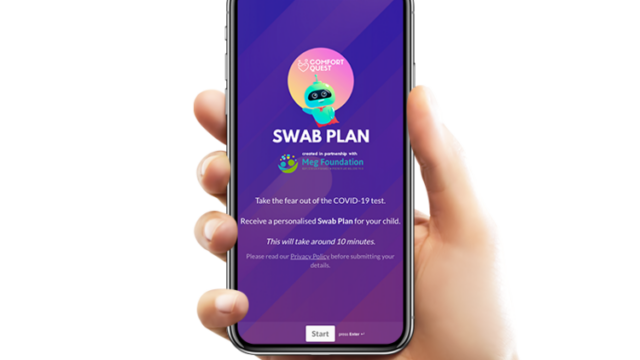
Digital Tool
Nasal Swab Comfort Plan Builder
Our cute robot friend Spud is here to guide your child to create a plan to feel calm and comfortable during a nasal swab!

Article
Treating Needle Fears May Reduce COVID-19 Vaccine Hesitancy Rates by 10%
A new large-scale study shows that a quarter of the UK adult population screens positive for a potential injection phobia.
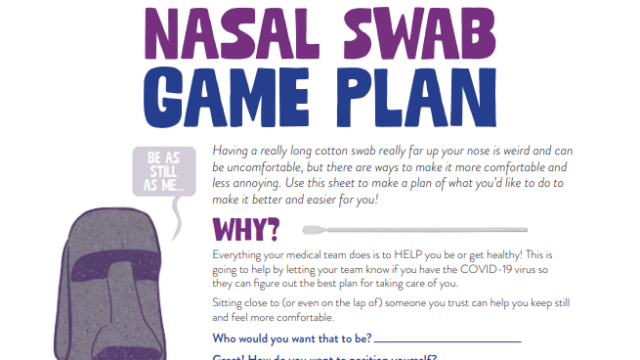
Downloads
Game Plan Worksheet: Creating Comfort During Nasal Swabs
We all do better with a plan! Use this to help kids create a coping plan before that next COVID test.

About the Author
Ines is a Licensed Marriage and Family Therapist working in private practice in Lafayette CA with individuals suffering with anxiety, trauma and depression. Ines is passionate about connecting with the people she works with and taking steps to help advance their journey towards recovery. Originally from Argentina, Ines is continually seeking training in new modalities to bring her patients wellbeing forward.
After her daughter’s Leukemia diagnosis, Ines and her family personally benefited from the pain management tools that the Meg Foundation endorse and has seen first hand the positive impact that they have. With this new found passion in pain management, Ines wants to make sure that these important tools are widely and readily available to the public, particularly parents of young children.
In her spare time, Ines can be found traveling with her family and enjoying nature.
